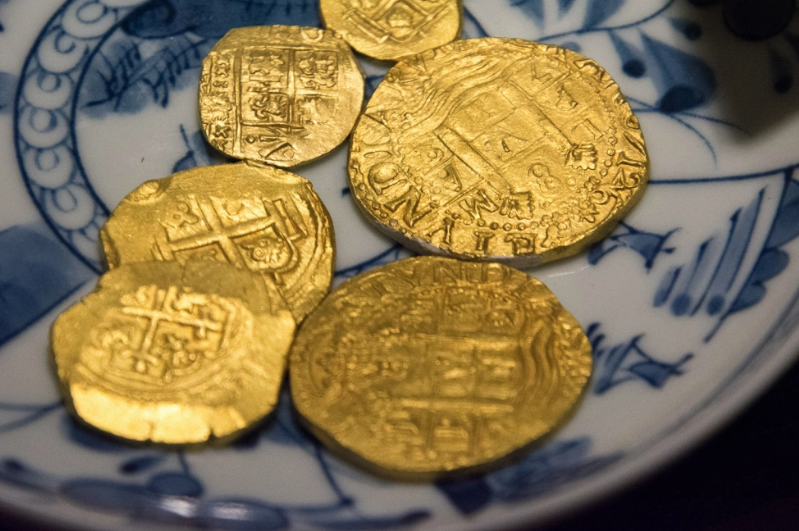‘Bread and Gold over Mice and Fleas’: Augustine and Aquinas as Proto-Austrians

One need look no further than the Mises Wire (and Hot H2O History, by proxy) to discover the profound–dare I say providential and as such, inevitable–confluence of the best of Catholic thought and the Austrian school of economics.
In dual submissions, Connor Mortell highlights just how much St. Augustine and St. Thomas Aquinas discovered truths and articulated them only to have the greats of the Salamanca school and then, later, Carl Menger, Eugen Bohm-Bawerk, Ludwig von Mises, Murray Rothbard and Frederick Hayek, expound upon them.
Indeed, this is why I am an Austrian; for while Mortell and Tom Woods draw out this radiant nexus in erudite and scholarly ways (I argue that every faithful and capable Catholic should be almost mandated to read Woods’s The Church and the Market), I sensed what can only be described as the inherent complementarity–that is, of the theology and the economics–before reading all of it. Call it sensus fidelium et sensus oeconomici (sense of the faithful and sense of the economic).
Why was this so clear? I assert that it has to do with the foundational approaches of the two; in short, I find little different from the deductive, natural law-based reasoning of the Catholics and the deductive, natural law-based reasoning (praxeology) of the Austrians. Both have axiomatic, a priori claims (one set rooted in the revelation of the Divine Word; the other set rooted in His divine order).
There should be no surprise then that similar economic conclusions were reached, and that, in turn, these economic conclusions can further inform our Catholic understanding of Revelation and sacred doctrine. The Truth attracts great truths.
Using Augustine’s observations on preferential option and Aquinas’s scholarship on, for example, the virtue of hope, later Austrian assertions are confirmed. It constitutes doctrinal development, if you will, done largely by Austrian Jews. Fitting, is it not, that a Galilean Jew started the saints in that direction through His own economic insights and assertions, only to have Viennese and American Jews refine them like an uncovering a bright lantern, pouring fresh wine into new wine skins, and producing salt that never loses its taste?
Mortell identifies and enumerates the fruits, per Peruvian economist Hernando de Soto:
- The subjective theory of value. *It revolutionized economics, and it alone renders Marx and Keynes inconsequential.
- The proper relationship between prices and costs.
- The dynamic nature of the market and the impossibility of equilibrium.
- The dynamic process of competition understood properly as a rivalry among sellers/providers.
- The rediscovery of time preference as a principle for valuation.
- The distortive influence of inflation on monetary prices.
- The negative consequences of fractional reserve banking.
- The assertion that bank deposits form part of the money supply.
- The impossibility of organizing society based on coercive commands.
- The tradition that unjustified intervention in the market wars against natural law.
Here’s a seed:
[A]ccording to the utility each man finds in a thing, there are various standards of value, so that it comes to pass that we prefer some things that have no sensation to some sentient beings. And so strong is this preference, that, had we the power, we would abolish the latter from nature altogether, whether in ignorance of the place they hold in nature, or, though we know it, sacrificing them to our own convenience. Who, e.g., would not rather have bread in his house than mice, gold than fleas? But there is little to wonder at in this, seeing that even when valued by men themselves (whose nature is certainly of the highest dignity), more is often given for a horse than for a slave, for a jewel than for a maid. Thus the reason of one contemplating nature prompts very different judgments from those dictated by the necessity of the needy, or the desire of the voluptuous; for the former considers what value a thing in itself has in the scale of creation, while necessity considers how it meets its need; reason looks for what the mental light will judge to be true, while pleasure looks for what pleasantly titilates the bodily sense. But of such consequence in rational natures is the weight, so to speak, of will and of love, that though in the order of nature angels rank above men, yet, by the scale of justice, good men are of greater value than bad angels.“
-St. Augustine, City of God, Book XI, Chapter XVI.
It is easy to be a Catholic, an Austrian economist, and then an anarchist: So easy, in fact, that I can only look back at my prior faith life with a whiff of soft pity, confounded as to how I carried on those days without knowing all of these sweet truths.


